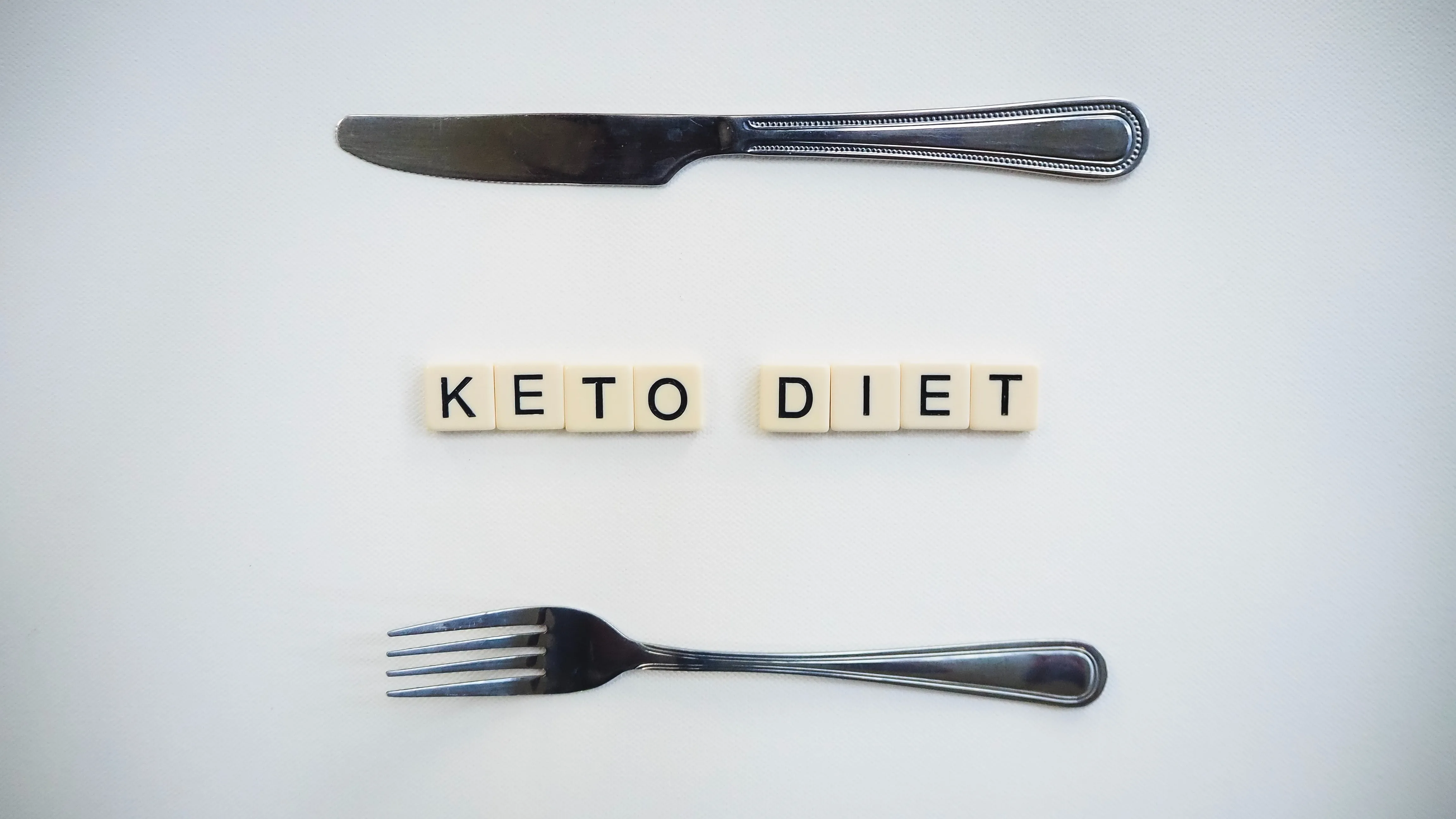Unlocking the Power of Fasting Ketosis: A Comprehensive Guide to Safe and Effective Weight Loss and Health Improvement

Introduction to Fasting Ketosis
Fasting ketosis is a state that the body enters into when it is deprived of carbohydrates, resulting in the burning of fat for energy. This is accomplished through a process known as ketogenesis, in which the liver produces ketones that are used by the body as a source of energy. Fasting ketosis is often achieved through a ketogenic diet that is low in carbohydrates and high in fat, or through periods of intermittent fasting.
What is Fasting Ketosis and How Does it Work?
When the body is deprived of carbohydrates, it begins to break down stored fat into ketones, which can be used as an alternative source of fuel for the body's cells. This process is known as ketogenesis, and it occurs naturally during periods of fasting, starvation, or a low-carbohydrate diet. In the absence of carbohydrates, the liver produces ketones from stored fat, which are then used by the body for energy. The process of entering into a state of fasting ketosis typically takes several days of carbohydrate restriction, during which the body depletes its glycogen stores and begins to produce ketones.
During fasting ketosis, the body experiences a number of changes that can impact health and wellness. Some of these changes include:
- Increased fat burning: As the body enters into a state of ketosis, it begins to burn stored fat for energy, resulting in weight loss and reduced body fat.
- Reduced inflammation: Fasting ketosis has been shown to reduce inflammation in the body, which can help to prevent chronic diseases such as heart disease, diabetes, and cancer.
- Improved insulin sensitivity: Fasting can improve insulin sensitivity, which can help to lower blood sugar levels and reduce the risk of diabetes.
- Enhanced mental clarity: Many people report improved mental clarity and focus when in a state of fasting ketosis, which may be due to an increase in ketones in the brain.
Benefits and Risks of Fasting Ketosis
While fasting ketosis has the potential to offer a number of health benefits, it is important to note that it is not without risks. Some of the potential benefits and risks of fasting ketosis include:
Benefits:
- Weight loss: Fasting ketosis has been shown to be an effective way to lose weight and reduce body fat.
- Improved insulin sensitivity: Fasting can improve insulin sensitivity, which can help to lower blood sugar levels and reduce the risk of diabetes.
- Reduced inflammation: Fasting ketosis has been shown to reduce inflammation in the body, which can help to prevent chronic diseases such as heart disease, diabetes, and cancer.
- Improved mental clarity: Many people report improved mental clarity and focus when in a state of fasting ketosis, which may be due to an increase in ketones in the brain.
Risks:
- Nutritional deficiencies: Restricting carbohydrates can lead to a deficiency in key nutrients such as fiber, vitamins, and minerals.
- Ketoacidosis: In extreme cases, fasting ketosis can lead to a dangerous condition known as ketoacidosis, which is characterized by high levels of ketones in the blood.
- Blood sugar imbalances: Fasting can lead to fluctuations in blood sugar levels, which can be problematic for individuals with diabetes.
- Muscle loss: In some cases, fasting ketosis can lead to muscle loss, particularly if the body is not receiving adequate protein.
Overall, fasting ketosis can offer a number of health benefits, particularly for individuals looking to lose weight, improve insulin sensitivity, and reduce inflammation. However, it is important to approach the practice with caution and to be aware of the potential risks and side effects. Consulting with a healthcare professional before embarking on a fasting ketosis regimen can help to ensure that the practice is safe and effective.

Getting Started with Fasting Ketosis
Fasting ketosis is a metabolic state in which the body burns stored fat for energy instead of carbohydrates. This process is achieved by limiting carbohydrate intake through a ketogenic diet or intermittent fasting. Fasting ketosis offers a number of health benefits, including weight loss, improved insulin sensitivity, and reduced inflammation. However, it is important to approach this practice with caution and be aware of the potential risks and side effects.
Preparation for fasting ketosis
Before starting a fasting ketosis regimen, it is important to prepare the body and mind for the changes that will occur. This includes gradually decreasing carbohydrate intake over several days and increasing fat intake to ensure the body has enough fuel to enter ketosis. It is recommended to consume foods that are high in healthy fats such as avocados, nuts, and seeds. Additionally, staying hydrated and getting adequate rest is essential to support the body during the transition into fasting ketosis.
Common mistakes to avoid
One of the most common mistakes people make when starting fasting ketosis is not consuming enough electrolytes, such as sodium, potassium, and magnesium. These minerals are essential for proper hydration and can be obtained through a daily supplement or by consuming electrolyte-rich foods such as leafy greens or bone broth. Another mistake is not consuming enough fiber, which can lead to digestive issues such as constipation. It is important to consume fiber-rich foods or supplements to prevent this problem.
Supplements to support fasting ketosis
Supplements can be used to support the body during fasting ketosis. Medium Chain Triglyceride (MCT) oil can be added to coffee or smoothies to increase the production of ketones. It is also important to supplement with omega-3 fatty acids to reduce inflammation in the body. Additionally, a daily multivitamin can help to prevent nutrient deficiencies during the carbohydrate-restricted phase of fasting ketosis.
The Science Behind Fasting Ketosis
Fasting ketosis is a metabolic state in which the body burns stored fat for energy instead of carbohydrates. This process is achieved by limiting carbohydrate intake through a ketogenic diet or intermittent fasting. Fasting ketosis offers a number of health benefits, including weight loss, improved insulin sensitivity, and reduced inflammation.
How fasting affects your body
During fasting ketosis, the body produces ketones from stored fat to use as fuel. This can lead to weight loss, as the body is breaking down fat for energy instead of relying on carbohydrates. Fasting also improves insulin sensitivity, which can help regulate blood sugar levels and reduce the risk of diabetes.
Additionally, fasting has been shown to reduce inflammation in the body, which is linked to a variety of health issues, including heart disease and arthritis.
The role of ketones in weight loss and health improvement
Ketones are a type of molecule produced during fasting ketosis. They are used by the body for energy instead of glucose. The production of ketones is linked to weight loss and other health benefits.
When the body is producing ketones, it is in a state of ketosis. This state can be achieved through a ketogenic diet or intermittent fasting. During ketosis, the body breaks down fat for energy and leads to weight loss.
Ketones have also been shown to have neuroprotective effects and may improve brain function. Additionally, they may be beneficial in the treatment of epilepsy and certain types of cancer.
In conclusion, fasting ketosis offers a variety of health benefits, including weight loss, improved insulin sensitivity, and reduced inflammation. However, it is important to approach this practice with caution and consult a healthcare professional before starting. Gradually decreasing carbohydrate intake, staying hydrated, and supplementing with essential nutrients can help to make the experience safe and effective.
Benefits of Fasting Ketosis
Fasting ketosis is a metabolic state whereby the body burns stored fat for energy instead of carbohydrates. This process can be achieved through a ketogenic diet or intermittent fasting by limiting carbohydrate intake. Fasting ketosis offers various health benefits, including weight loss, improved insulin sensitivity, and reduced inflammation.
Weight Loss
During fasting ketosis, the body produces ketones from stored fat, which are used as fuel instead of glucose. Breaking down fat for energy instead of carbohydrates can result in weight loss, making it a popular approach to achieving weight loss goals. Ketogenic diets in particular, which focus on high-fat, moderate-protein and low-carbohydrate intake, have been found to increase weight loss in both the short-term and long-term.
Improved Insulin Sensitivity
Fasting ketosis can also improve insulin sensitivity, which is essential in maintaining optimal blood sugar levels. When the body is producing ketones, it can help regulate blood sugar levels and minimize the risk of diabetes. Ketogenic diets have been shown to have anti-diabetic effects. However, there should be caution taken for individuals receiving pharmaceutical treatment for diabetes as their treatment may need adjustment while being on a ketogenic diet.
Reduced Inflammation
Fasting ketosis can help reduce inflammation in the body which is linked to various health issues such as heart disease and arthritis. Studies have shown that fasting can reduce oxidative stress and inflammatory responses in the body. Additionally, a ketogenic diet has been shown to lower inflammatory markers such as C-reactive protein (CRP).

Potential Risks and Side Effects
Fasting ketosis can provide various health benefits. However, it also has potential risks and side effects that need to be considered. Before attempting any kind of fasting or ketogenic diet, consulting with a healthcare professional is essential to ensure that it is appropriate for an individual's health status and goals.
Keto flu
One potential side effect of fasting ketosis is the "keto flu." This flu-like condition often arises in the beginning stages of a ketogenic diet or fasting when the body is adjusting to using ketones for fuel instead of glucose. Symptoms can include headache, fatigue, dizziness, nausea, and irritability. However, this condition typically resolves within a few days to a week.
Electrolyte imbalance
Fasting ketosis can also cause an electrolyte imbalance as the body is excreting water and salts. This can result in symptoms such as dehydration, muscle cramps, weakness, and constipation. It is important to maintain adequate hydration and electrolyte levels through consumption of electrolyte-rich foods or supplements, especially during fasting or following a ketogenic diet.
Other potential risks
While fasting or following a ketogenic diet, individuals may also experience changes in cholesterol levels, elevated levels of uric acid, and hepatic steatosis. These risks are typically transient and resolve with adjustment of dietary intake. Nonetheless, individuals with pre-existing medical conditions such as liver or kidney disease should consult with their healthcare professional before attempting any kind of fasting or ketogenic diet.
In conclusion, fasting ketosis can provide various health benefits such as weight loss, improved insulin sensitivity, and reduced inflammation. However, it also has potential risks and side effects that need to be considered. Before starting any kind of fasting or ketogenic diet, consulting with a healthcare professional is important to ensure that it is safe and appropriate for an individual's health status and goals. Adequate hydration, electrolyte obtainment, and gradual reduction of carbohydrates intake are crucial to minimizing potential risks and ensuring the effectiveness of fasting or ketogenic diet.

Maintenance and Long-Term Use
Fasting ketosis has been shown to provide various health benefits. However, before attempting any kind of fasting or ketogenic diet, it is important to consider the potential risks and side effects. Consulting with a healthcare professional is crucial to ensure that the diet is safe and appropriate for an individual's health status and goals.
How to maintain your progress
Following a fasting or ketogenic diet can be challenging in the long term. To maintain progress, individuals can consider the following tips:
- Gradually reintroduce carbohydrates into the diet to prevent weight regain and maintain metabolic flexibility.
- Eat a variety of nutrient-dense foods to ensure adequate intake of vitamins and minerals.
- Incorporate physical activity into the daily routine to support weight loss and overall health.
- Monitor dietary intake and make adjustments as needed based on individual needs and goals.
Long-term benefits of fasting ketosis
While more research is needed, there are potential long-term benefits of fasting ketosis.
These include: Improved cognitive function, Ketones may provide an alternative fuel source for the brain and improve cognitive function in individuals with neurological disorders such as Alzheimer's disease.
Reduced risk of chronic diseases, Fasting and ketogenic diets have been linked to improvements in biomarkers associated with chronic diseases such as type 2 diabetes and cardiovascular disease.
Improved metabolic health Fasting and ketogenic diets may improve insulin sensitivity and metabolism, leading to better weight management and overall health.
Final thoughts on the benefits of fasting ketosis
Fasting ketosis can provide health benefits in the short and long term. It is important to be aware of the potential risks and side effects and to consult with a healthcare professional before attempting any kind of fasting or ketogenic diet. Incorporating a variety of nutrient-dense foods, physical activity, and monitoring dietary intake can support long-term success.
Resources for further information
- The Art of Fasting
- Low Carb Intermittent Fasting
- Intermittent Fasting and Ketogenic Diet


